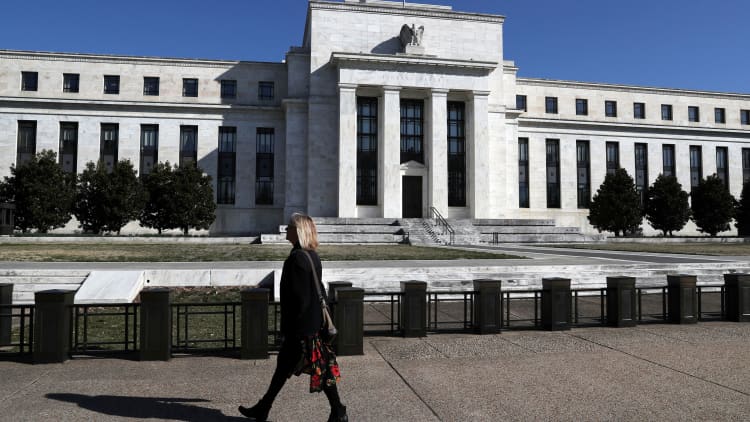
Federal Reserve officials last month saw the case for easier monetary policy gain momentum, minutes from the central bank's June meeting showed.
"Several participants noted that a near-term cut in the target range for the federal funds rate could help cushion the effects of possible future adverse shocks to the economy," the minutes said, which were released Wednesday. "Some participants also noted that the continued shortfall in inflation risked a softening of inflation expectations that could slow the sustained return of inflation to the Committee's 2% objective."
The central bank kept interest rates unchanged at its previous meeting on June 18-19, however. The minutes showed that "some" participants thought at the time that more data needed to be gathered before moving forward with lower interest rates.
"There was not yet a strong case for a rate cut from current levels," according to the meeting's summary.
Still, the Fed's notice that it will "act as appropriate" to sustain the current economic expansion led investors to consider a July rate cut a near certainty. Traders are currently pricing in a 100% probability of a rate reduction by the Fed, the CME Group FedWatch tool shows.
Fed Chair Jerome Powell bolstered those expectations Wednesday. Powell testified before Congress that "crosscurrents" stemming from trade and global growth were dampening the U.S. economic outlook.
He also said: "There is a risk that weak inflation will be even more persistent than we currently anticipate."
China and the U.S. have slapped tariffs on billions of dollars worth of each other's goods over the past year. The prolonged trade spat has sparked fears of lower corporate earnings and slower global economic growth.
"Participants generally agreed that downside risks to the outlook for economic activity had risen materially since their May meeting, particularly those associated with ongoing trade negotiations and slowing economic growth abroad," according to the minutes. Another risk highlighted by the minutes include the possibility of a prolonged negotiation between lawmakers to raise the debt ceiling.


